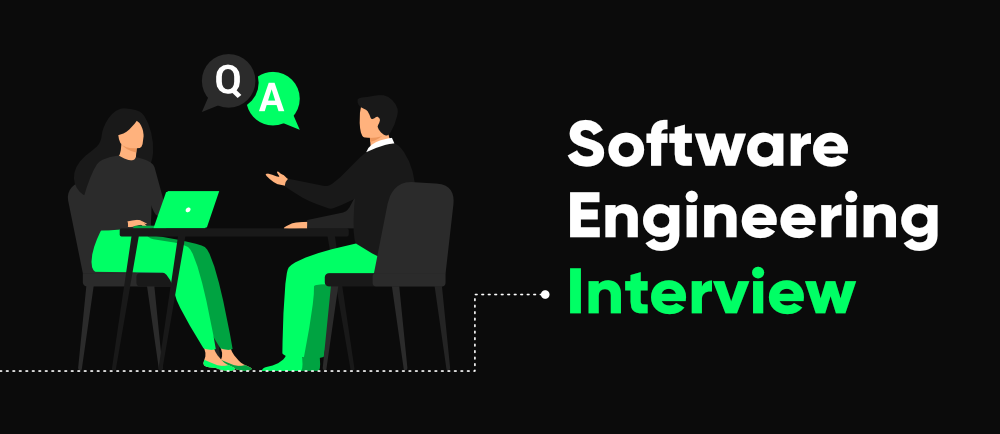Navigating Software Engineering Interviews at Top-Tech Companies

Landing a software engineering job at a top-tech company like Google, Facebook, Amazon, or Microsoft is a dream for many aspiring engineers.
Landing a software engineering job at a top-tech company like Google, Facebook, Amazon, or Microsoft is a dream for many aspiring engineers. These companies are known for their rigorous interview processes designed to identify the best talent. While the journey to securing such a position can be challenging, being well-prepared can make all the difference. Here’s a comprehensive guide to help you navigate the software engineering interview process at top-tech companies.
1. Understand the Interview Process
The interview process at top-tech companies typically consists of several stages:
a. Resume Screening: Your resume needs to stand out. Highlight your technical skills, relevant projects, and any experience with algorithms, data structures, and system design. Make sure to tailor your resume to the job description.
b. Initial Phone Screen: This usually involves a recruiter or a technical screener assessing your fit for the role. Be prepared to discuss your background, projects, and solve a couple of coding problems.
c. Technical Phone/Online Interviews: These are more in-depth and typically involve solving coding problems on a shared coding platform. You might also be asked about your past projects and experiences.
d. Onsite Interviews: These are comprehensive and can include multiple rounds of technical interviews, coding challenges, system design questions, and behavioral interviews.
e. Behavioral Interview: Focuses on your soft skills, teamwork, problem-solving abilities, and how you handle various work situations. Familiarize yourself with the STAR (Situation, Task, Action, Result) method to structure your answers effectively.
2. Master Data Structures and Algorithms
A significant portion of the technical interviews will focus on data structures and algorithms. Here’s how to prepare:
a. Core Concepts: Make sure you have a strong understanding of core concepts like arrays, linked lists, stacks, queues, hash tables, trees, graphs, sorting, and searching algorithms.
b. Practice Problems: Use platforms like LeetCode, HackerRank, and CodeSignal to practice a wide range of problems. Start with easy problems and gradually move to medium and hard ones.
c. Time Complexity: Understand the time and space complexity of different algorithms. Be prepared to discuss the efficiency of your solutions.
3. System Design
For senior positions, system design interviews are crucial. These assess your ability to design complex systems.
a. Study Basics: Understand the fundamentals of system design, including scalability, load balancing, database design, caching, and microservices.
b. Real-World Examples: Practice designing systems like URL shorteners, social media platforms, messaging systems, etc. Books like “Designing Data-Intensive Applications” by Martin Kleppmann can be extremely helpful.
c. Mock Interviews: Practice with peers or use platforms like Pramp to simulate the interview environment.
4. Behavioral Interviews
Behavioral interviews assess your fit within the company culture and your soft skills.
a. STAR Method: Use the STAR method to structure your answers. Prepare stories from your past experiences that highlight your problem-solving skills, teamwork, leadership, and adaptability.
b. Company Research: Understand the company’s culture, values, and recent news. Tailor your answers to align with their core values.
c. Practice Common Questions: Prepare for common questions like “Tell me about yourself,” “Describe a challenging project you worked on,” and “How do you handle tight deadlines?”
5. Mock Interviews and Feedback
a. Practice with Peers: Conduct mock interviews with friends or colleagues to simulate the interview environment.
b. Professional Services: Consider using professional interview coaching services. Websites like Interviewing.io offer mock interviews with experienced engineers from top-tech companies.
c. Analyze Feedback: After each practice session, analyze the feedback thoroughly. Identify your weaknesses and work on them.
6. Take Care of Yourself
Interview preparation can be stressful. It’s important to take care of your mental and physical health.
a. Rest: Ensure you get enough sleep, especially before the day of the interview.
b. Relaxation Techniques: Practice relaxation techniques like deep breathing, meditation, or yoga to manage stress.
c. Stay Positive: Stay positive and confident. Remember, interviews are a two-way street. You are also assessing if the company is the right fit for you.
Conclusion
Cracking the code to land a software engineering job at a top-tech company requires dedication, preparation, and perseverance. By understanding the interview process, mastering key concepts, practicing rigorously, and taking care of your well-being, you can significantly increase your chances of success. Remember, each interview is a learning experience, and with each step, you are getting closer to your goal. Good luck!
- Share This Job



Write A Comment
No Comments